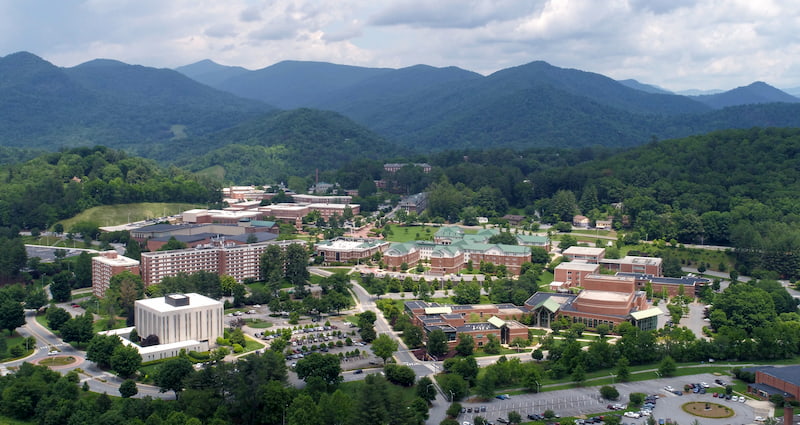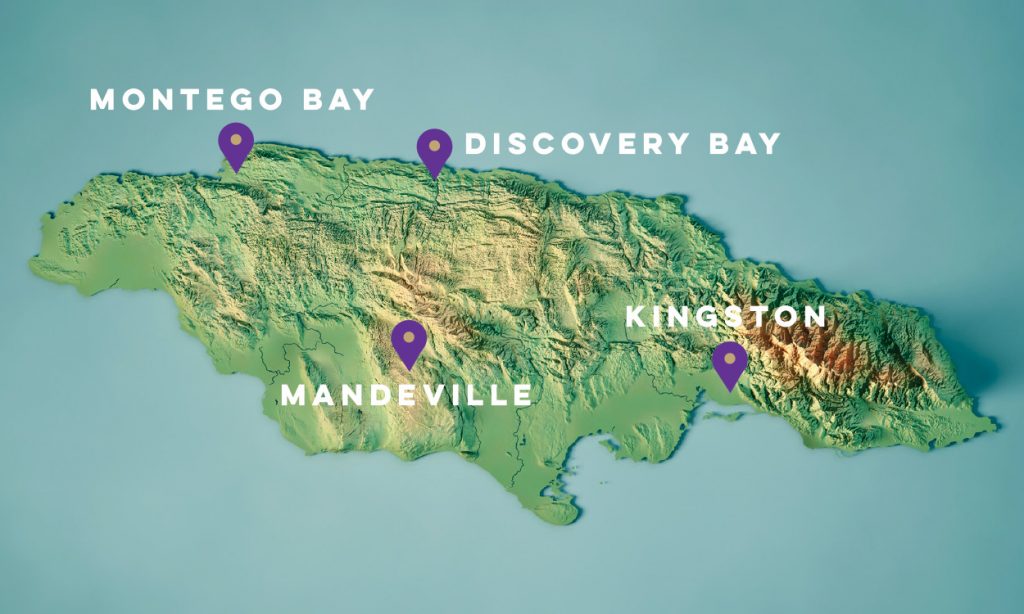Chancellor-elect, trustees hear about research, outreach at Highlands Biological Station
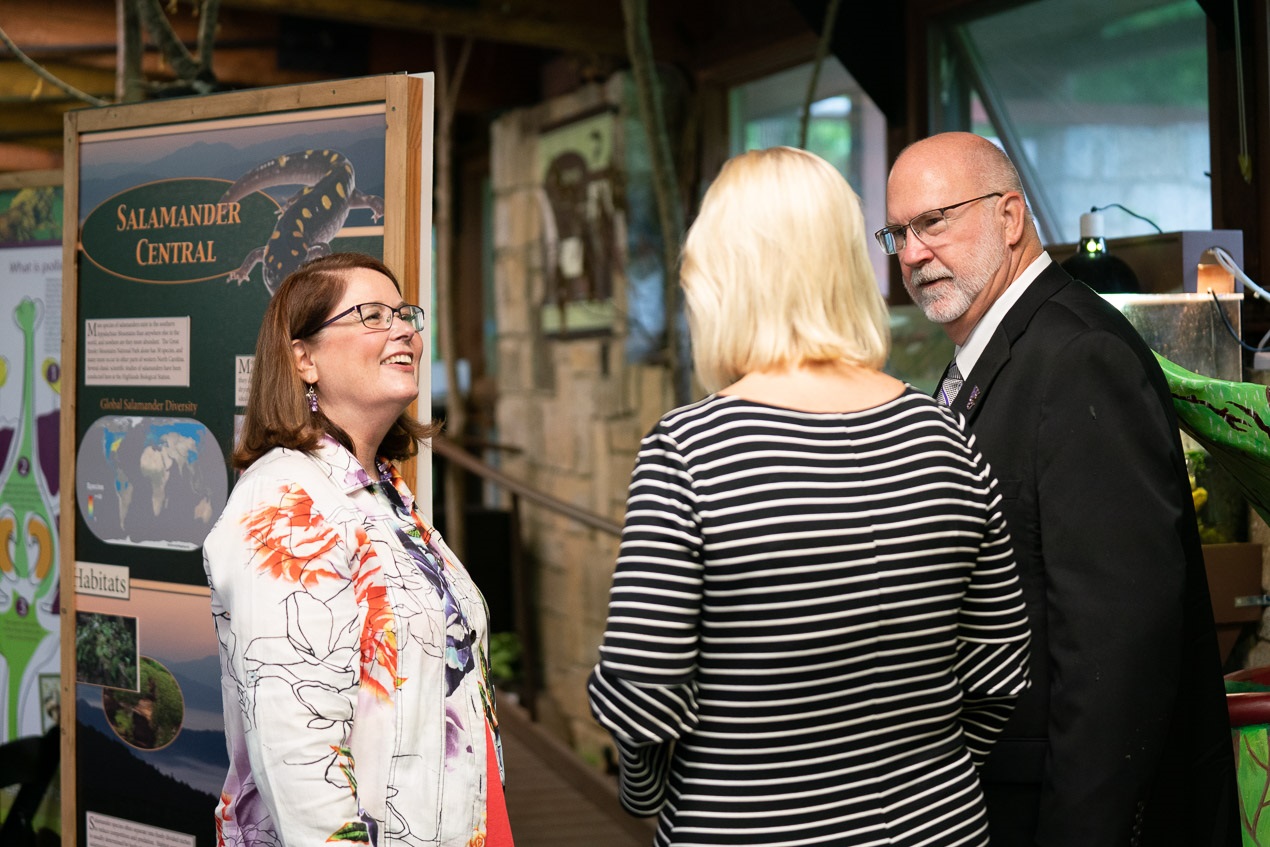
WCU Chancellor-elect Kelli Brown (left), her husband, Dennis (right), and university trustee Grace Battle tour the Highlands Nature Center, a part of the Highlands Biological Station.
Kelli Brown, the chancellor-elect at Western Carolina University, and the WCU Board of Trustees toured the Highlands Biological Station on Thursday, June 6, as the topic of the board’s quarterly discussion of interest.
Located within a half-mile of downtown Highlands, the 23-acre facility is internationally recognized and utilized for its accessibility to flora, fauna and expert sources for teaching and learning. The visit was designed to provide those on the tour with information about the university’s recently increased role with the facility and its mission of fostering research and educational opportunities in the biodiverse region of the Southern Appalachian Mountains.
Established in 1927, the Highlands Biological Station includes the Highlands Nature Center, the William Coker Laboratories and the Highlands Botanical Garden, along with a series of public-accessible trails and boardwalks. The station hosts the annual Zahner Lecture Series, as well as numerous workshops, exhibits and family-friendly nature activities throughout the year. On the grounds are a 7-acre lake and nearly 500 species of mosses, ferns, wildflowers, shrubs and trees in natural forest, wetlands and old-growth settings.
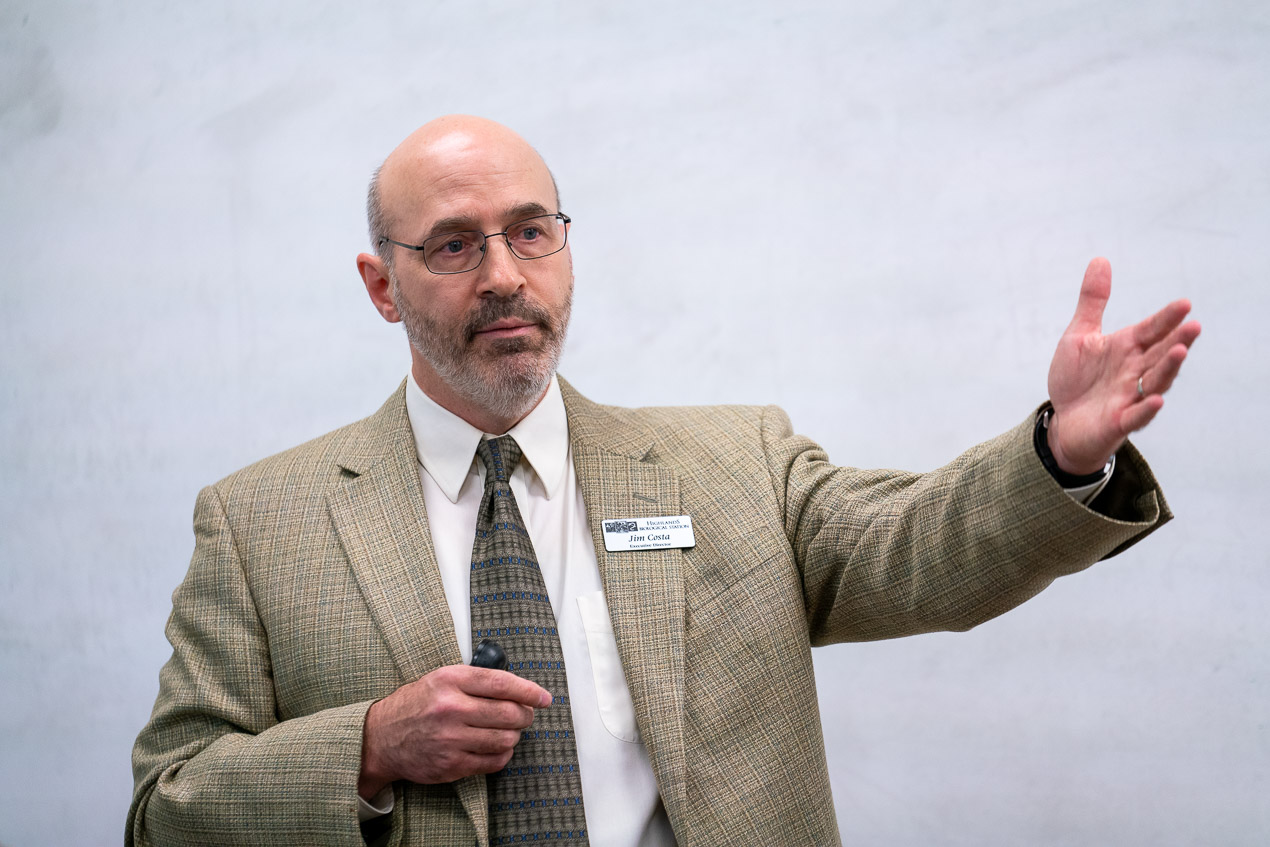
Jim Costa
“When people ask, ‘what is the Highlands Biological Station and what do we do,’ I say we are placed-based, very focused on environmental field studies in all areas of biological science, and very fortunate to be located in a vibrant community,” Jim Costa, the executive director of the station and a WCU professor of biology, told the group. “Often, field stations are distant and remote. From the get-go, we’ve interfaced with our community and we communicate about the science that is conducted here.
“So, ultimately, this is what it’s about: serving the scientific community, the university community and the local mountain communities,” he said.
Alison Morrison-Shetlar, WCU’s interim chancellor, spoke about the value of the Southern Appalachian natural research and nontypical learning conducted onsite, and how the time had come for WCU to align more closely with Highlands Biological Station. That goal, now fully and formally effective, required efforts and commitments by WCU, the University of North Carolina System, the Highlands Biological Station board of directors and Highlands Biological Station Foundation’s board of trustees, she said.
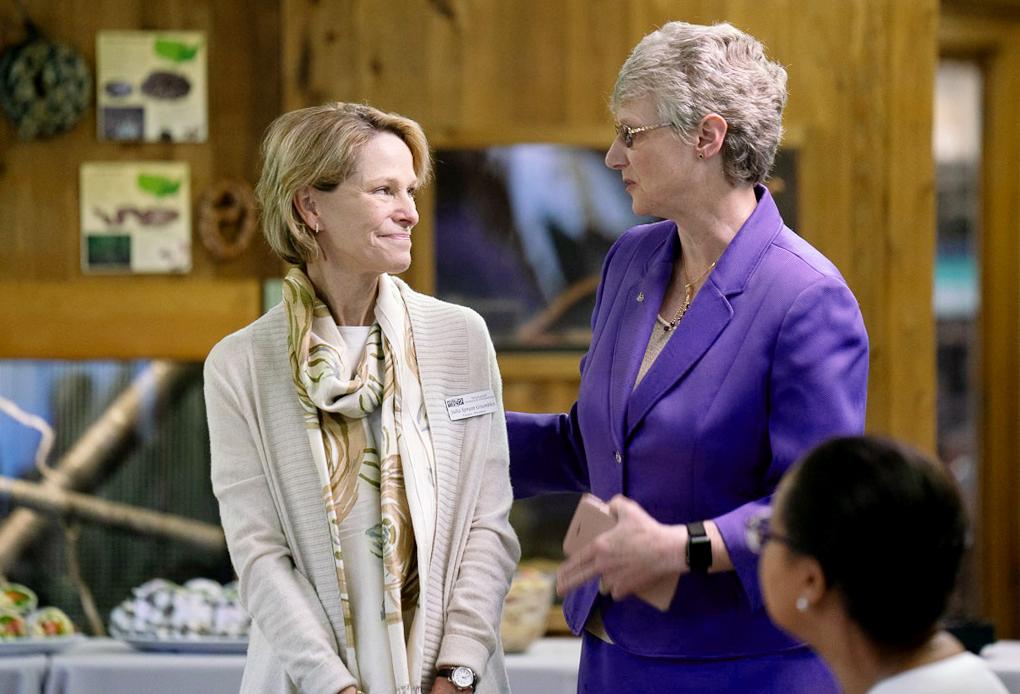
From left, Julia Grumbles, president of the Highlands Biological Foundation, speaks with Interim Chancellor Alison Morrison-Shetlar and Acting Provost Carol Burton.
“We really worked through a lot of the details to get this to happen. This is a fabulous gem of a place and we are so excited about the merger of two significant entities of Western North Carolina,” said Morrison-Shetlar. “Folks have really invested in this, and we are so grateful that we can join together for nature, the environment and learning.”
The station was founded and operated as a private institution for its first 50 years. The state of North Carolina began limited funding in the 1950s, and support from the National Science Foundation and the state aided facility expansion in the 1960s. The station was acquired by the university system through an agreement with the founding nonprofit Highlands Biological Foundation in 1977, officially becoming an interinstitutional center of the UNC System.
Matina Kalcounis-Rüppell, University of North Carolina Greensboro biology professor and biology department head, was among the researchers and scientists who spoke to the group about the importance of the station, even for those whose home institution may be far away. She said the location affords a special opportunity for her to study ultrasound and acoustics for communication by bats and mice in natural settings, an important part of understanding biodiversity and habitats.
For more information about the Highlands Biological Station, the Highlands Nature Center and programs, go to www.wcu.edu/hbs.
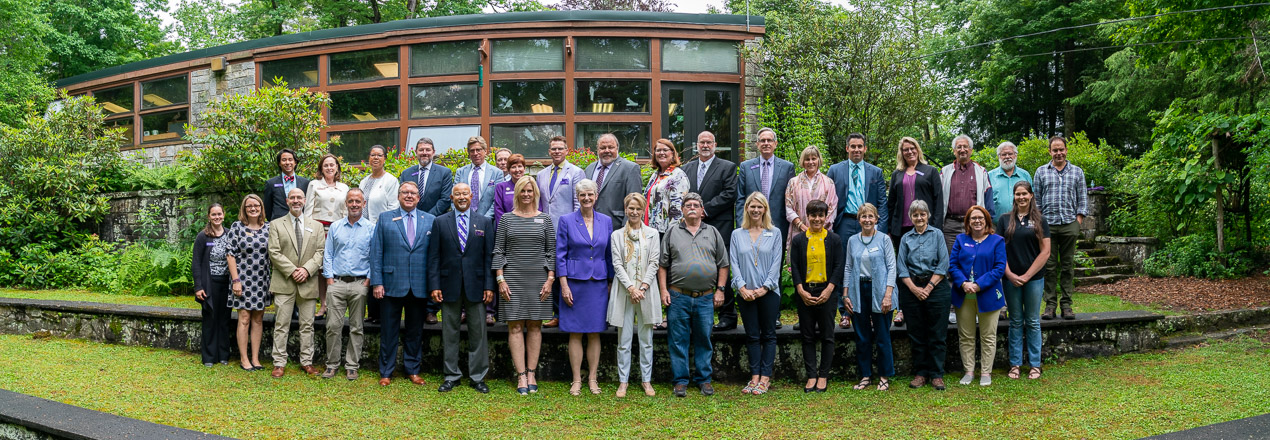
Participants in the walking tour and discussion get together outside the Highlands Nature Center.
